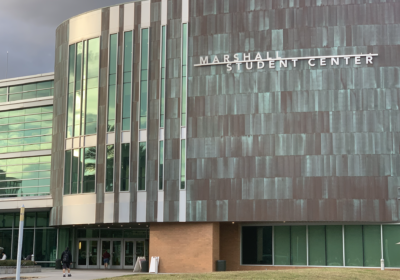USF alumni travel the world via Peace Corps

Botswana, Togo, Fiji, Peru and Mongolia are just some of the places where USF students have been stationed in the Peace Corps.
Over the past year, USF has seen a increase in the number of Peace Corps graduate students serving overseas. The university has gone from No. 16 to No. 5 in number of participating graduate students.
Peggy Defay, a USF graduate student in public health and head of the USF Peace Corps recruiting office, said the recent success was due to a general global perspective at USF.
“USF is a big global school, even where my office is located within USF World, there is a big push for the global world and being culturally sensitive,” she said.
Defay said the success was also due to teamwork within the recruiting office as well as cooperation between USF Public Health and the USF College of Engineering.
“We do a lot of outreach, we speak a lot in classrooms, we have a lot of information sessions and we have application workshops,” she said. “Generally, being the face of Peace Corps on campus is important – letting people know we exist.”
There are 13 USF alumni currently volunteering worldwide for the Peace Corps, a national program established by President John F. Kennedy that allows graduate students to pursue their studies while serving abroad in disadvantaged and developing nations. This is a 30 percent increase from last year and adds to the list of 406 USF alumni who have traveled through the program.
According to Defay, USF students are passionate about going abroad, which leads to increased participation in the Peace Corps.
“Student are looking for other things at this point in time, and (the Peace Corps) gives them the opportunity to go abroad especially because they don’t have to pay anything,” she said.
Defay has personal experience with the Peace Corps, having served in Namibia for two years.
“It was nothing short of amazing,” she said. “I was able to develop professionally and personally. I was able to really understand what public health issues were at the graduate level … Coming out of undergrad, the Peace Corps really afforded me the opportunity to understand what public health is. I worked collaboratively a lot, it was mostly people asking, ‘This is what the issue is, can you help us?’”
Defay said experiencing Namibia was the best part of her service.
“Just being there, just being at a different level, living in a different way was very exciting. I had heard that you develop a lot of friendships, but I didn’t expect them to be so intense,” she said. “I was amazed by how welcoming people are and how willing they are to include you in their life.”
However, Defay also faced challenges during her time in the Peace Corps.
“Sometimes, there’s no water, no electricity. It can get frustrating in the beginning but you get used to that,” she said.
Despite the struggles, Defay said the strength of local Namibians was a major motivator when she occasionally became discouraged by overwhelming social problems.
“You’re going to meet a lot of people that are so positive, that are so happy with what their lives are,” she said. “And that’s what’s going to motivate you. I definitely had days that were harder than others, but when I had a hard day, I really had to force myself out of my house. You’re going to be OK because the locals are OK, they’ve been dealing with these situations their whole lives. If they can make it work, why can’t I make it work?”
Defay said the challenges are actually some of the most constructive and important parts of Peace Corps service. She encouraged interested volunteers to embrace some hardships as an opportunity for personal and professional growth.
“Expect to be challenged in a way you have never been challenged before,” she said. “In your courses you have been challenged, but the Peace Corps will challenge everything about you in a good way. It really gets you thinking about life in general. How can you make a difference in the world at the end of the day? I’m not saying you have to build a school, but what capacity do you have to make a difference in one person’s life?”






